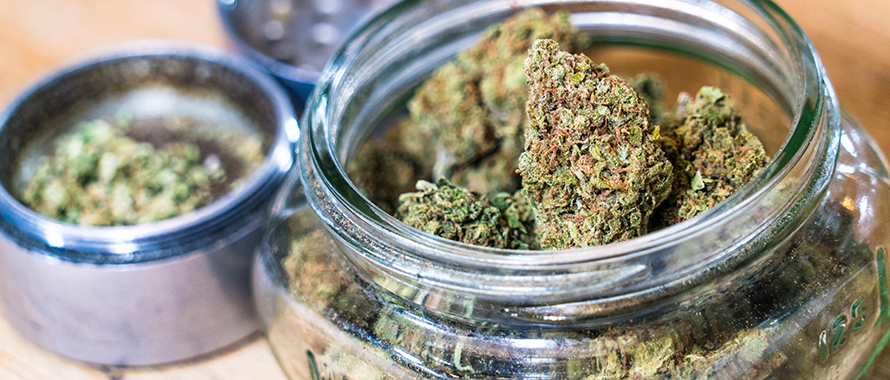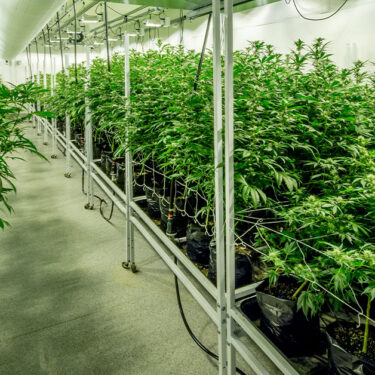Legal cannabis sales in the U.S. could exceed $30 billion by 2022, marijuana analytics company Headset recently projected in an updated long-term forecast. It is an increase in estimated sales from the Seattle-based firm’s previous report, released in April, that showed the U.S. market reaching $28 billion in yearly sales by 2022. The change reflects new recreational or medical marijuana markets launching in New Mexico, Connecticut and Alabama, further boosting an industry that Headset reports is “moving quickly” and shows no sign of slowing down.
“This is exactly what I would expect,” said Emily McDaniel, Broker, Commercial Insurance, Burns & Wilcox, Denver, Colorado. “I am seeing more insurance submissions in states that are new or coming on to medical or recreational legalization, so these numbers are not surprising.”
The fully legalized cannabis market in Canada remains strong, with Headset’s latest report now projecting annual sales to reach $5.5 billion in 2022, surpassing its previous estimate of $4 billion. New licenses for marijuana facilities are being approved at a faster rate in multiple provinces, contributing to additional growth, said Leena Malik, Underwriter, Commercial Insurance, Burns & Wilcox, Toronto, Ontario.
“In Ontario, which is the leading province for retail recreational cannabis sales in Canada, the AGCO has have moved away from a lottery system and are now approving 20 to 30 licenses every single week,” she said. “Other provinces like Alberta and B.C. are also leading the charge and wanting to have as many retailers open as possible. You would think the pandemic would slow things down, but it actually was the time when we saw things really speed up.”

You would think the pandemic would slow things down, but it actually was the time when we saw things really speed up.
Insurance should address property risks, product recalls, more
Although insurance requirements vary between the U.S. and Canada, new cannabis processing, growing and retail operations in both countries are subject to a variety of property and liability risks — from fires and severe weather to product recalls and employment-related lawsuits — that must be taken into consideration when starting or expanding a marijuana business.
Cannabis operations generally require a range of insurance policies to address their unique risks. Commercial Property Insurance can help with expenses related to severe weather or fire damage, for example, while Commercial General Liability (CGL) Insurance could pay for costs that arise over third-party bodily injuries or property damage. Crop Loss Insurance and Equipment Breakdown Insurance should also be considered.
On July 21, firefighters and police responded to a large fire at a cannabis processing plant in Milton, Ontario.1 Officials are still investigating the cause of the blaze.
“It looks like 10 or 12 of the greenhouses burned down,” Malik said. “If they did not have the proper insurance coverage in place, it would be very unfortunate to see a large grower take a hit like that without a policy to act on their behalf.”
Fires are a known potential peril with many cannabis facilities, where the equipment and processes involved in growing and extracting can mean a higher risk of fires and explosions.2 “Fire is a large risk,” she added. “We also want to see maintenance, upkeep and inspections happening regularly to help avoid these things, especially with electrical work.”
In the event of a recall, contamination incident or other issue with a product, Products Liability Insurance and Product Recall Insurance could cover costs such as physically recalling items, replacing affected products, public relations work to repair the brand’s reputation, and any legal defense or settlement costs that may follow. A recall in the cannabis space can be “quite a significant loss,” Malik said, often costing $1 million or more. “That sort of loss is not easy to self-insure. An uninsured loss in this space could wipe out a company.”
In Canada, CGL Insurance and Product Recall Insurance are both required in order to be eligible to work with the government.
“The required amount varies from province to province,” Malik said. “Insurance is a critical step in their business plan and will have to show proof of coverage prior to any sales.”
Business, regulatory changes could lead to serious losses
By January of 2021, the legal cannabis industry in the U.S. supported about 321,000 full-time-equivalent jobs.3 This expanding job market means Employment Practices Liability Insurance (EPLI), which can respond to lawsuits over things like alleged discrimination or wage-and-hour violations, is essential for most companies.4 Directors & Officers (D&O) Insurance, which helps to protect a company’s directors and officers in the event they are accused of mismanagement, may also be important. Smaller marijuana operations that do not have a human resources professional on staff should be particularly mindful of labor laws and the risk of employment-related lawsuits if they are not followed.
Without insurance, “employment claims can be expensive to litigate against on your own,” McDaniel said. “The fines can be costly, and it can slow down their productivity from a business standpoint.”
Some cannabis businesses experimented with delivery and shipping services during the pandemic, which could present another potential risk, McDaniel explained. These businesses could need Commercial Auto Insurance or Cargo Insurance, she said.
“That would be for any marijuana company that has a commercial auto exposure, whether they are delivering a product or they have a fleet of vehicles,” she said, noting that Cargo Insurance could cover the loss of product while it is in transport. “A lot of times there is a high value of products being transported, so they need to be protected.”
The potential impact of unexpected regulatory changes should also be front of mind for cannabis business owners, especially as more hemp-derived THC products enter the marketplace, McDaniel said. This includes delta-8, a cannabinoid product that is technically unregulated federally and that some believe should be banned.5 In May, for example, Colorado officials banned hemp-derived THC isomers such as delta-8.6
“This is a shift for us in the U.S. marketplace,” she said. “Hemp-derived products were federally legalized with the Farm Bill, but now that different cannabinoids are being extracted out of the hemp-derived products that are psychotropic or have higher THC levels, the federal government is trying to figure out how to combat that.”
Companies must keep up with these regulatory issues, McDaniel pointed out. “If you are not paying attention, you could unknowingly be doing something that is illegal or out of compliance with your state government and regulations.”
With continued growth ahead, specialized broker can advise business owners
Cannabis companies should review their insurance policies regularly, making sure to update their broker on any changes in projected sales before renewal time, McDaniel said. In many cases, as sales increase, owners seek to add additional protections that they may have put off in the early days of starting a business.
“As the cannabis industry matures and with the way businesses are growing their sales, there is usually greater willingness to pay for additional insurance coverage that they may not have needed when they started,” she explained. “When they first got their dispensary license, all they needed was the bare minimum to get going. The more profitable they become, the more they are thinking about how they can protect their assets and their business.”

If a licensed producer is signing multiple contracts and having more deals in place, their liability exposure is significantly higher.
A period of business growth is a good time to check in with your broker, Malik agreed. “If a licensed producer is signing multiple contracts and having more deals in place, their liability exposure is significantly higher,” she said. “If they only had a precautionary $1 million limit while their revenues were very low, but now they have quadrupled their receipts, they should look at upping that limit to the $5 million or $10 million. As your exposure grows, you want to have more coverage in place.”
Given the many regulatory intricacies involved in the industry, cannabis business owners are best served by partnering with a specialized insurance broker. Expertise in the cannabis industry is “extremely tailored,” Malik said. “You really want to be working with someone who knows the ins and outs and can guide you along the process,” she said. “There is a lot of added value in it.”
The cannabis industry is likely to see continued growth for years to come, Malik said. A recent survey indicated that the increase in cannabis consumption seen in the U.S. during the pandemic is expected to remain at this level or grow further.7 In April, Canada saw its second straight month of record cannabis sales.8
“I definitely see it still in growth mode,” she said. “Especially with the number of stores that are opening up, we have not seen any cannibalization of sales. I think that is just a testament to the growth stage of the industry right now. Even when the pandemic hit, we still saw double-digit growth.”
Sources
1The Milton Canadian Champion. “Major fire in Milton under investigation by Ontario Fire Marshal's Office.” Toronto Star, July 21, 2021. 2Rainey, Rebecca. “New problem for legal weed: Exploding pot factories.” Politico, February 18, 2019. 3Barcott, Bruce; Whitney, Beau; and Bailey, Janessa. “The US cannabis industry now supports 321,000 full-time jobs.” Leafly, February 16, 2021. 4Aiello, Chloe. “Cannabis Industry Poised for Major Job Growth in 2021, Vangst CEO Says.” Cheddar News, March 5, 2021. 5Sullivan, Kaitlin. “Delta-8 THC is legal in many states, but some want to ban it.” NBC News, June 28, 2021. 6Hemp Industry Daily. “Colorado bans delta-8 THC, other THC isomers derived from hemp.” Hemp Industry Daily, May 14, 2021. 7Borchardt, Debra. "Cannabis Consumption Is Expected to Remain High Even After Pandemic." Green Entrepreneur, July 28, 2021. 8MJBizDaily. “Canada posts second straight month of record cannabis sales.” MJBizDaily, June 23, 2021.





